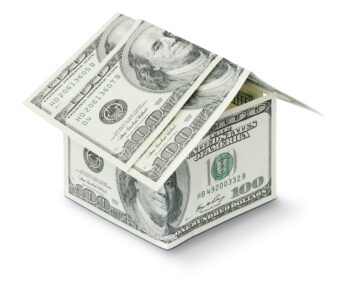Let’s face it – home buying isn’t easy. It can be tempting to say “what’s another $100 a month?,” but that can get you into trouble if you take it too far!
Here are a few things to consider as you determine how much home you can afford.
What Type of Loan Are You Getting?
The first thing to consider is what kind of mortgage you want. Are you trying to pay it down quickly by getting a 15 year mortgage? That type of mortgage is great if you hate the idea of being in debt for 30 years, so a lot of people like to go down that route. Just know that there is a downside when it comes to the aspect of how much home you can afford.
Even though a 15 year mortgage lets you pay off the principal very fast, it also has a higher monthly
payment than a 30 year loan. In other words, you can actually afford a more expensive home if you go with a 30 year loan than a shorter term.
For example, a $300,000 mortgage at 3.92% interest rate over 30 years will cost about $1,418 per month. If you get a 15 year loan at 3.42% interest rate (because 15 year loans tend to have lower rates), the monthly payment is $2,133. That’s about 50% more than the 30 year.
If you only want to pay $1,418 on a 15 year loan, the mortgage would have to be about $200,000.
What is Your Credit Score and DTI?
Two other things that factor into how much home you can afford are your credit score and debt-to-income ratio, or DTI. These two things play a large role in determining what kind of interest rate a lender will offer you.
For example, let’s say you’re a high risk and the lender’s mortgage offer is 4% interest. On a $300,000 home, that means your payment is $1,422 per month. If you are seen as a low risk, it may be 3% interest, meaning your payment is $1,265 per month. To get back up to the $1,422 per month, you can buy a home in the $337,000 range.
Your DTI is important because lenders want to make sure you have enough cash to pay all of your bills and living expenses. If your revolving debts (mortgage, car payment, student loans, etc.) exceed 36% of your gross income, it will be harder to get a good interest rate because you’re seen as a high risk.
How Much Home You Can Afford is Based on Income
Last but not least is your income. A common rule is that you shouldn’t spend more than 28% of your gross income on your housing.
For example, let’s say you make $5,000 a month. 28% of that would be $1,400. That may not sound like a lot when you’re making $5,000 a month, but keep a few things in mind.
$5,000 a month is gross income. Assuming 33% taxes, that drops to $3,350. After paying $1,400, now you have $1,950 left. That $1,950 is for paying everything else
- Utilities
- Car payment
- Student loans
- Food
- Entertainment
- Insurance
- Etc.
Do you have to follow the 28% rule? No, but it gives you a good benchmark to see how high your monthly payment can be without stretching yourself thin.


